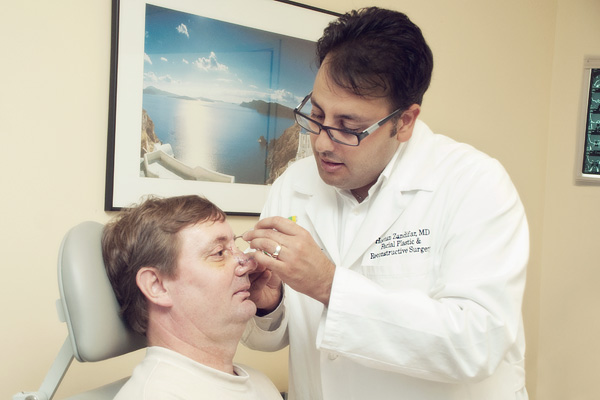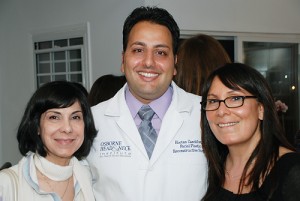- Folded Ear in Newborns: Treatment Options - April 11, 2018
- Newborn Ear Deformity: What Can Be Done? - April 11, 2018
- Ear Molding: An Overview - November 2, 2017
- Otoplasty for Protruding Ears - September 26, 2017
- Basal Cell Carcinoma: Facial Reconstruction Timing - September 26, 2017
- Clinical Considerations of Mohs Reconstruction of Cheek Defect - September 26, 2017
- Basal Cell Carcinoma: Nasal Bridge Reconstruction - September 26, 2017
- Skin Cancers Involving the Eyebrow: Clinical Considerations - October 3, 2016
- Treatment of Multiple Skin Cancer Lesions - June 1, 2016
- Skin Cancer: Nasal Reconstruction and Scar Management - June 1, 2016
Skin cancer is an important topic to discuss, as it is an emerging, if not already arrived, threat to our health. Here are answers to common questions that patients have about this issue.
“Why should I be worried about skin cancer?”
According to the Centers for Disease Control (CDC) skin cancer is the most common type of cancer afflicting Americans. Each year about one million skin cancers are detected. This is a vast and complex topic that affects millions of people worldwide. In fact, while the incidence of most cancers have been on a decline, the incidence of skin cancers has been on a steady rise over the past few decades.

“Who can get skin cancer and what are the risk factors?”
Although genetics and skin color can increase or decrease your likelihood of getting a skin cancer, everyone is at risk of developing this disease. The number one risk of developing skin cancer is radiation and sun exposure. The ultraviolet (UV) rays of the sun can penetrate the skin cells and cause damage to the DNA. If enough damage has been done then these cells can divide uncontrollably and become cancerous. The type of skin cancer, in turn, can be determined by the type of skin cell that is dividing out of control.
“What are the different types of skin cancer?”
There are 3 common types of skin cancer. The most common type is called Basal Cell Carcinoma (BCCA) and is derived from basement membrane cells of the epidermis. The next most common type is called squamous cell carcinoma (SCCA) and it is derived from squamous cells of the epidermis. Finally, the deadliest type is called malignant melanoma (MM). This type is derived from melanin (pigment) producing cells of the skin.
“What can people do to decrease the likelihood of developing skin cancer?”
Whenever it is possible, we suggest that you avoid the midday sun as the UV rays are the strongest during this time. If this is not possible then we recommend shielding your skin by either seeking shade or covering up with a hat and clothing that cover your skin. Of course, a typical T-shirt has an SPF equivalent that is lower than SPF 15 therefore you should apply sunscreen to your entire skin 30 minutes prior to leaving the house. You should re-apply sunscreen every 2 hours if you continue to be outdoors. Also remember to apply sunscreen even on cloudy days as the sun’s harmful UV rays can penetrate cloud layers and cause damage to your skin.
“What about tanning beds? Are they safe?”
Actually, no they are not. In fact, they can be more harmful than being in the sun as the rays are concentrated and can cause extreme damage to the skin in a short amount of time.”
“At what age should we start to worry about sun damage to our skin?”
Just like brushing your teeth, sun protection should be part of everyone’s daily routine. Most sunscreens are approved for ages 6 months and up and we recommend their use in children ages 6 months and up on a daily basis. Remember that it is the cumulative damage to the skin that can lead to developing skin cancer so the sooner you start to protect your skin the less likely you are to develop skin cancer.
For more information on how to protect yourself from the sun you can read a previous article: “Your Skin, Your Image: How to Safely Have Fun in the Sun.”
One Final Note:
It is typical to see elderly patients with skin cancer, as sun protection was not practiced while they were growing up. However, recently there has been an increase trend in patients in their 30s, 40s and 50s who are presenting with skin cancer and this is worrisome. Even though most skin cancers are not deadly, they can cause great cosmetic damage to the body structures and surgery will always leave you with a scar. Prevention is still the best way to avoid these problems and proper sunscreen application is the key. I hope that everyone can incorporate healthy sun protection in their daily lives and to pass it on to their children so that we can decrease the incidence of this disease.
To learn more about Dr. Hootan Zandifar or skin cancer, visit: http://www.ohniskin.com/



